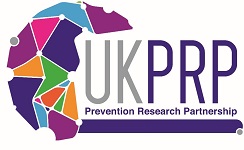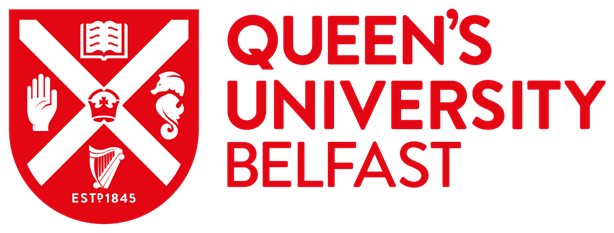About Groundswell
The GroundsWell team of researchers, local communities, implementers and policymakers will create a virtuous cycle of research, data, policy, implementation and active citizenship. By working together, we will all better understand and evidence the role of UGBS (Urban Green and Blue Spaces) within wider social, economic, environmental, cultural and health systems. We will identify and implement actions to maximise health benefits from UGBS. Our democratisation of the research and decision-making process will be based on principles of co-design, co-implementation, co-evaluation and co-translation.
GroundsWell has four guiding principles:




The main research will take place in three cities – Belfast, Edinburgh and Liverpool City Region. These have sufficient similarities (such as large and diverse low-income communities) but also distinct features (such as geography and culture) making them, collectively, an ideal laboratory. Each city already has policies and programmes in place to improve UGBS, but there is much room for improvement. GroundsWell will take a systems approach. This means understanding the multiple and interconnecting components of policy-making, practice, perception and people which together affect the presence, location, character and use of UGBS. It also means working to transform the system so that the components function together. To do this, GroundsWell will mix co-development of new theoretical frameworks, novel data science including simulation, health economics and policy analysis, but at its heart will be community engagement and partnership. We will develop and use meaningful community engagement, co-production and citizen science to understand the system, identify how and where it is broken, and co-create solutions. We anticipate interventions aimed at how the UGBS system operates, and small-scale interventions around actual spaces and their use.
You can find further detail about each work package below.
- Work package 1: Development of a system-oriented conceptual framework for shared understanding and transformations of UGBS
- Work package 2: Informing and simulating system-based UGBS transformations using agent-based
modelling
Co-lead by Prof Ruth Hunter and Dr Leandro Garcia
Aim
Co-develop and implement Agent-based Models (ABMs) that guide, facilitate, and contribute to: 1) hypothesis generation and data collation; 2) synthesise learning, and use of multiple layers of evidence to inform future UGBS initiatives.
Objectives
1) Co-develop and implement a stylised (i.e. abstract “toy model”) ABM, complementing our conceptual framework, to generate hypotheses and inform data collation; 2) Co-develop and implement a virtual platform for simulating a portfolio of future UGBS initiatives and their potential impact on a variety of city-wide NCD, inequalities, and co-benefit indicators.
- Work package 3: Community innovation, co-production and citizen science for UGBS interventions
Co-lead by Prof Ruth Jepson and Prof Catharine Ward-Thompson
Aim
To co-develop and evaluate processes for: 1) meaningful partnership working, and 2) citizen science approaches that lead to health enhancing and evidence based UGBS interventions.
Objectives
1) Co-develop and evaluate processes to enable communities at most risk from NCD
to have meaningful involvement in decision-making process about enhancing the health benefits of their local UGBS; 2) Co-develop and evaluate small scale (but situated within the complex system) UGBS projects to test these processes; 3) Use citizen-science approaches and tools to generate real-time ‘signals’ in the system and data on NCD outcomes. We focus on communities in the 3 cities at high risk of NCD and often excluded groups such as refugees, people with mental health issues. - Work package 4: Developing a dynamic data repository for pioneer cities to evidence system-wide
benefits of UGBS interventions
Co-lead by Prof Sarah Rodgers, Dr Mark Green and Dr Rebecca Geary
Aim
Generate a repository of well-curated, policy relevant, research-ready UGBS and linked NCD data for our pioneer cities, to inform the co-design and evaluation of large-scale UGBS interventions; provide Consortium access to GroundsWell-generated data and analyses.
Objectives
1) Extract, connect and harmonise existing diverse UGBS and NCD data sources; 2)
Evaluate the impact of meso- and macro- scale UGBS interventions on NCD, health inequalities in NCD risk factors, wider co-benefits; 3) Co-develop a platform to share data on current UGBS locations, needs and benefits; 4) Collation and mobilisation of GroundsWell data (with WP1). - Work package 5: Economic evaluation innovation for capturing UGBS system-wide benefits
Co-lead by Prof Ciaran O'Neill and Prof Alberto Longo
Aim
To examine the whole system “societal” economic case for UGBS interventions.
Objectives
1) Co-explore the role of the social economy and community assets, and assess their
significance, for development and implementation of UGBS interventions; 2) Investigate people’s preferences and monetary values for UGBS, particularly exploring UGBS use for those at high risk of NCD; 3) Evaluate the social return on investment (SROI) in UGBS capturing system-wide benefits.
-
Work package 6: Political and decision-making contexts of UGBS for health actions and co-benefits
Co-lead by Dr Ben Wheeler and Dr Alex Nurse
Aim
Co-explore the decision-making arrangements and contexts of UGBS initiatives for health, co-benefits and inequalities; identify pragmatic, systems-scale actions to improve policy and decision making to promote equity and sustainability, and address power disparities.Objectives
1) Work with decision-makers from across the nested systems to understand how
UGBS for health and co-benefits are conceptualised and implemented, and where responsibility, accountability and agency are considered to lie; 2) Identify what works in improving co-beneficial policy and decision-making within a complex adaptive system and in enabling communities to play an active, informed and meaningful role in decision-making. - Work package 7: Embedding and evaluating impact
Co-lead by Prof Ruth Hunter, Prof Ruth Jepson and Prof Sarah Rodgers
Aim
To co-develop, implement, monitor and evaluate a stakeholder-informed impact strategy that creates and evaluates impact within the 5 years of funding and beyond.
Objectives
1) Understand where impact should and could be demonstrated, informed by
stakeholders needs; 2) Co-develop a strategy (with embedded activities, knowledge brokers and measures of performance) to ensure capacity and expertise throughout the UGBS system (community, policy, practice, research) to deliver impact; 3) Embed measures of impact in monitoring and evaluation plans - Cross-cutting theme: Health inequalities
Co-lead by Dr Ana Porroche-Escudero and Prof Richard Mitchell
Aim
A cross-cutting theme ensures health inequalities is at the core of GroundsWell. There are stark inequalities in access to and use of high quality UGBS, falling along - and at the intersection of familiar axes such as socio-economic position, gender, ethnicity, (dis)ability and age. There is a critical opportunity to ensure that improvements to the quality and characteristics of UGBS support and promote use – addressing socio-spatial inequalities as well as quantity/proximity of UGBS – and
also more amenable to intervention than making more/closer spaces.




